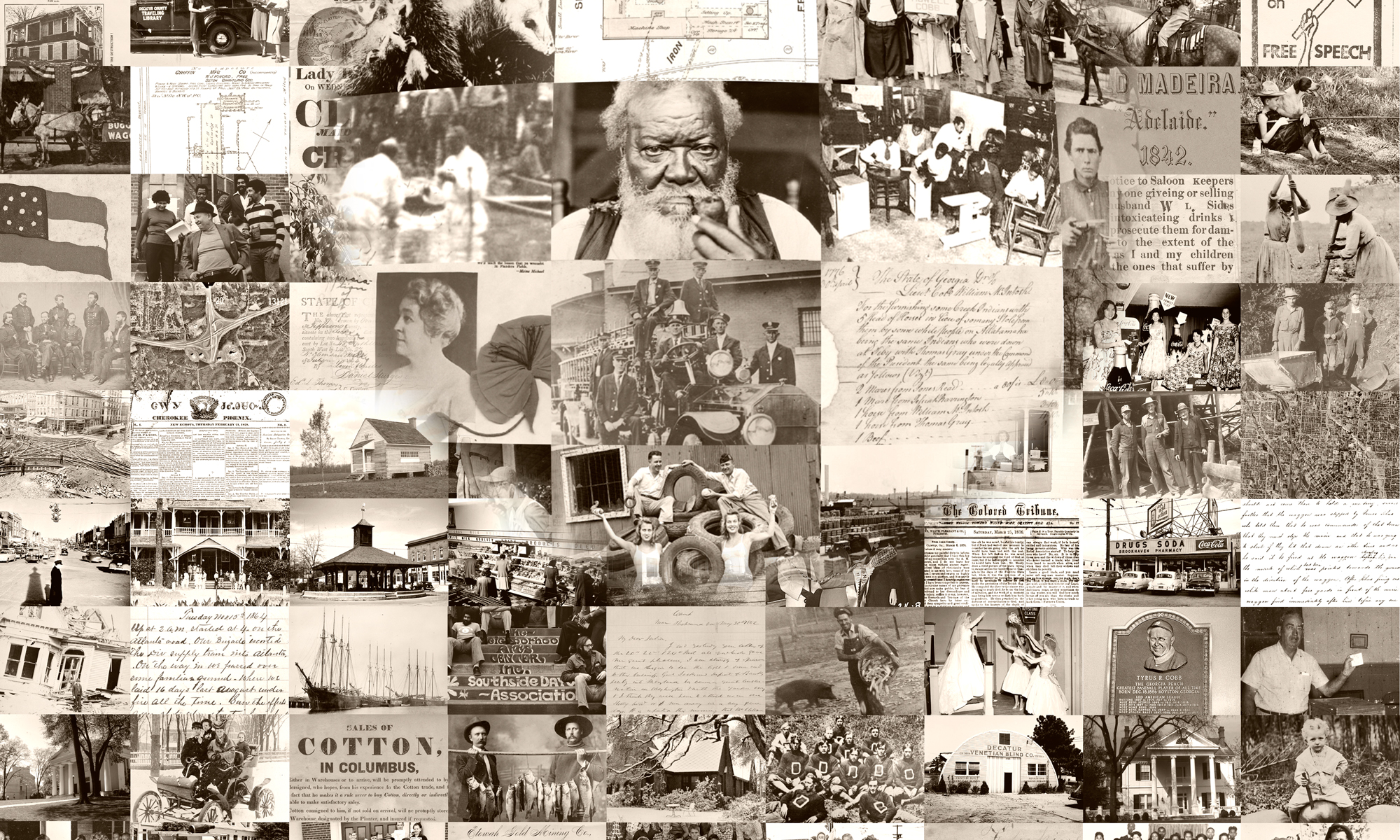![Letters: Woodrow family, 1853-1857. Columbia Theological Seminary Collection, James Woodrow papers, 1808, 1836-1916 [bulk 1850-1867].](http://blog.dlg.galileo.usg.edu/wp-content/uploads/2015/06/James-Woodrow-letter-241x300.jpg)
Chris Paton, the seminary archivist at Columbia Theological Seminary, shares the history of their archives:
“Columbia Theological Seminary received its first dedicated space in 1996 as the result of a major library renovation and in the same year was formally named the C. Benton Kline, Jr. Special Collections and Archives in honor of a former seminary president and faculty member. However, the John Bulow Campbell Library preserved historical materials for many years before then, focusing primarily on the seminary’s own records. In 2006, the archives collecting scope changed significantly, expanding beyond seminary history to include records of Presbyterian churches, presbyteries, and the history of the Presbyterian Church in the southeastern United States. As a result of this change in scope, the archives increased greatly in size; about 3,000 boxes of materials dating from the late 18th century to nearly the present were moved to the archives in spring of 2007.”
The three new digital collections that have just been made available from Columbia Theological Seminary include:
- Charles Colcock Jones papers, 1831-1856 This collection includes manuscript sermons, 1831-1856, preached by Charles Colcock Jones, Presbyterian minister and educator at First Presbyterian Church (Savannah, Ga.) and other Georgia locations that include Montevideo, Maybank, Arcadia, Sunbury, Midway, and Pleasant Grove. The collection also includes an undated “charge” to newly ordained bishops; a booklet of handwritten notes taken by an unidentified individual and titled “lectures on the Religious Instruction of the Blacks by Prof. C. C. Jones, Columbia, S.C., May 22, 1838”; and three published booklets, two of which were authored by Jones: “Address to the senior class in the Theological Seminary of the Synod of South Carolina and Georgia . . .,” dated 1837 and “The glory of woman is the fear of the Lord,” undated. The third publication is “A mother’s legacy to her only daughter” by “Cornelia,” dated 1856.
- James Woodrow papers, 1808, 1836-1916 [bulk 1850-1867] This collection contains correspondence by and to Presbyterian minister, educator, and editor James Woodrow and his family and associates, dating mostly from the early 1850s to the 1870s. It also contains clippings, publications, and a scrapbook pertaining primarily to the controversy in the 1880s over Woodrow’s alleged teaching of evolution at Columbia Theological Seminary; Woodrow family correspondence, 1836-1916; correspondence relating to the Baker and Woodrow families; a published 1902 sermon by Woodrow; a manuscript copy of Robert E. Lee’s farewell address issued to the Army of Northern Virginia on the day following his surrender; a photograph of James Woodrow; and reproductions of materials relating to early Georgia newspaper editor Sarah Porter Hillhouse. The published materials relate primarily to the evolution controversy of the 1880s. The scrapbook includes clippings relating to discussions of the reunion of the northern and southern Presbyterian churches after the Civil War and other matters. Topics in the correspondence include Woodrow’s observations on life in the southern United States, his experiences at Oglethorpe University and studying abroad at Heidelberg University, his discernment of a call to ministry, family experiences during the Civil War, and matters relating to his publishing business.
- John Newton papers, 1783-1797 This collection consists primarily of sermon notes and sermons (1783-1797) delivered by John Newton, Presbyterian minister and founder of the Beth-Salem Presbyterian Church in Lexington, Georgia. It also includes a few sets of notes labeled “lecture” and lists of catechetical questions based on the Westminster Shorter Catechism. Most of the sermons were preached at Beth-Salem church in north Georgia; some notes bear notations indicating they were preached at Goshen, Cloud’s Creek, Providence, Fairforest, Shugar [sic] Creek, and New Hope. Three documents dated late September, 1789 are titled “Preparation Sabbath,” “For the Fast Day,” and “Action.” Sermon notes from December 9, 1795 are titled “Fast of Humiliation Sermon.” Several additional documents are titled “Action” sermons.
Paton describes the significance of these three collections, and how they have furthered research:
“They have been used to support institutional initiatives (such as development campaigns, seminary publications, and institutional research); to enrich classroom work; and as resources for scholars exploring Presbyterian and Southern history and religion. At present, they are being used for research into the seminary’s history as we approach our 190th anniversary. As a whole, the collections shed light on important aspects of the history of the southeastern United States from the late 18th century nearly to the present day, especially religion, education, and issues relating to race, slavery, and the Civil War. Evolution is also an important topic in the collections; in the late 19th century the seminary was the center of a controversy regarding the relationship of evolution to scripture and religion.”
She describes a letter in the James Woodrow papers collection:
“I especially like the letters of James Woodrow written when he first came to Georgia to teach at Oglethorpe University in the early 1850s. In them, he comments on people, places, and customs of the time. One letter stands out especially for me; it is from 1853 and includes a small aerial sketch and description of the area around the mouth of the Savannah River.”
Please take a look at these new collections, and join us in welcoming Columbia Theological Seminary as our new project partner.

